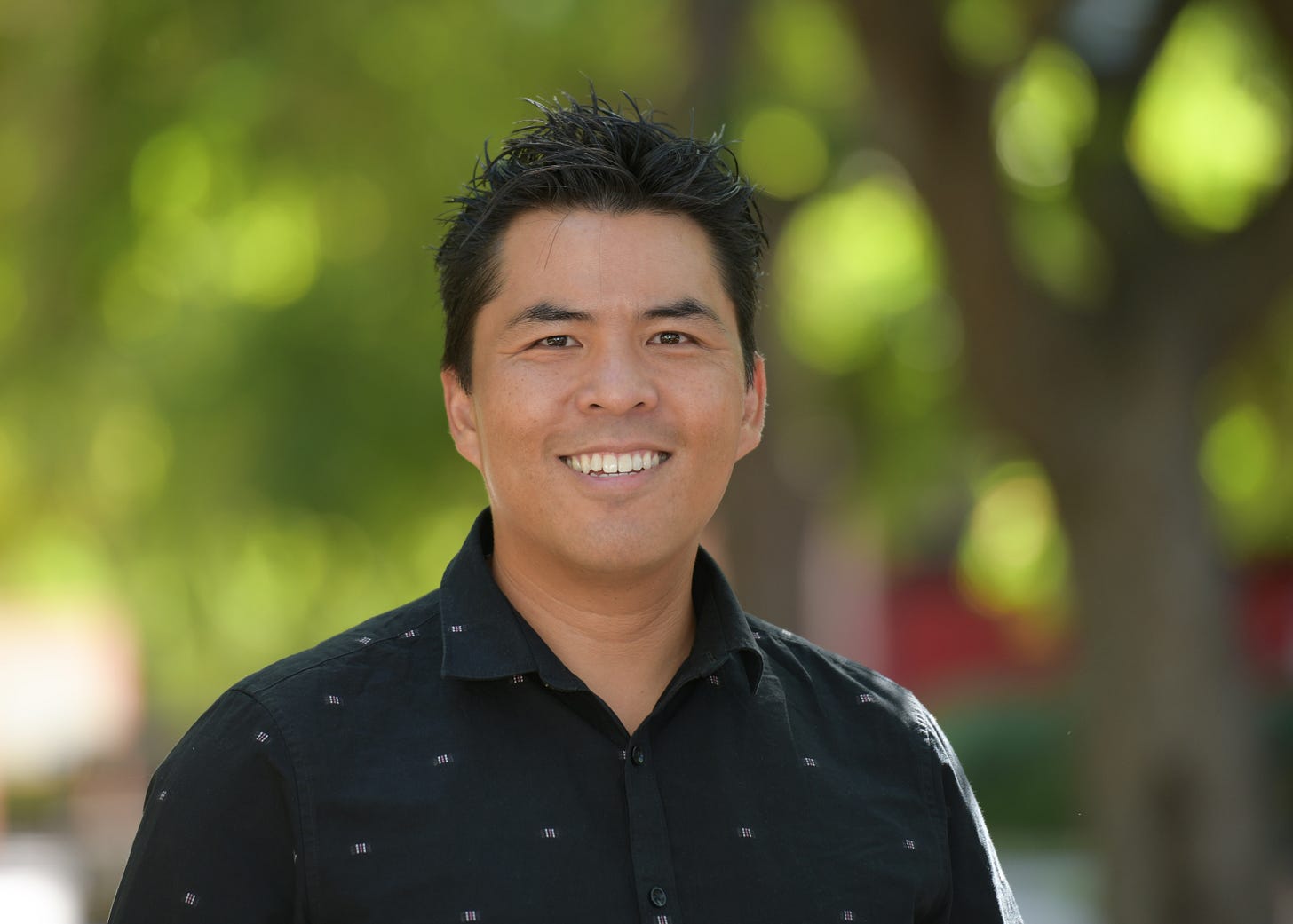Why Philosophy? Barry Lam
The Host of Hi-Phi Nation weighs in on the readings that have shaped him and his current projects
What is philosophy to you?
I think of philosophy as the attempt at finding a kind of insight into the reality of things that is particularly hard, or impossible to get, from empirical observation alone. It is the kind of insight that must still be subject to scrutiny from reasons and reasoning, which differentiates philosophy from something like New Age speculation.
How were you first introduced to philosophy?
I took a famous course at UC Irvine as a first-year undergrad, called “Humanities Core.” It was a double-credit introduction to essentially all of the humanities, or as much of the humanities as can fit into a year-long course. Philosophy played a central role in that course, about a third of it, and was integrated fully with literature, history, film, and art criticism. I read Plato, Descartes, Heidegger, Locke, Mill, Martin Luther King, and Malcolm X, alongside the Odyssey, Aeneid, Journey to the West, Aztec theology, and the Origin of Species. It was, in every respect, a “great books” course. It was the beginning of a lifelong commitment to all of the humanities, and philosophy in particular.
How do you practice philosophy today?
I mostly look for philosophical issues and assumptions that underlie conflicts that one finds in everyday life, law, science, the arts, and technology, and try to see how different assumptions would lead to different ways to resolve those conflicts. Then I interview people involved in those very conflicts, philosophers who have thought about those conflicts and issues, and I make a 50-minute documentary audio podcast from those interviews. Subsequently, I continue to think about the topics professionally and start writing about them in long-form essays or books.
What is a philosophical issue that is important to you?
In the last decade or so, I've been interested in our obligations to dead people and past versions of ourselves. Past people issue decrees and wills, and many living people have promised past people many things on their behalf after their deaths. The job of the living and of legal institutions has been to carry out those decrees, wills, and promises decades, even centuries, after the deaths of such people.
Similarly, people over time make long-term commitments, commitments that can only be carried out to completion or fulfillment if our future selves cooperate with the edicts of our past selves. But many of us change significantly over time, significantly enough that the revision of our desires and commitments is quite common. We frequently break promises to ourselves, break out of past commitments and resolutions, and yet very few of us would consider this to be an injustice to our past selves. I am really interested in whether these two things, the way we treat past others, and the way we treat our past selves, can be reconciled.
What books, podcasts, or other media have stood out to you as a philosopher?
My own podcast, Hi-Phi Nation, is the most central piece of work that shapes almost everything else I do in philosophy. I enjoy many other podcasts, both philosophical or other. My favorite two podcasts of all time are Heavyweight and Rough Translation, both human interest shows, but they are aspirational for me. Their aesthetic shapes even how I try to communicate in philosophy. In philosophy, I like listening to Dave and Tamler on Very Bad Wizards, and Kieran Setiya's Five Questions. A book that has been influential to me as a philosopher, but is not philosophy, is The Inner Game of Tennis by Timothy Gallwey. In terms of philosophy books, I've read so many books, it is hard to name, but I'm going to go back to Plato as an ongoing inspiration, the Socratic Dialogues, the Republic.
Barry Lam is Professor of Philosophy at UC Riverside, host and producer of Slate's Hi-Phi Nation podcast, and is Associate Director of the Marc Sanders Foundation, where he directs the Philosophy in Media program that aims to identify and train the next generation of public intellectuals who come from philosophy. He has a new trade book currently out with Norton called Fewer Rules, Better People.






